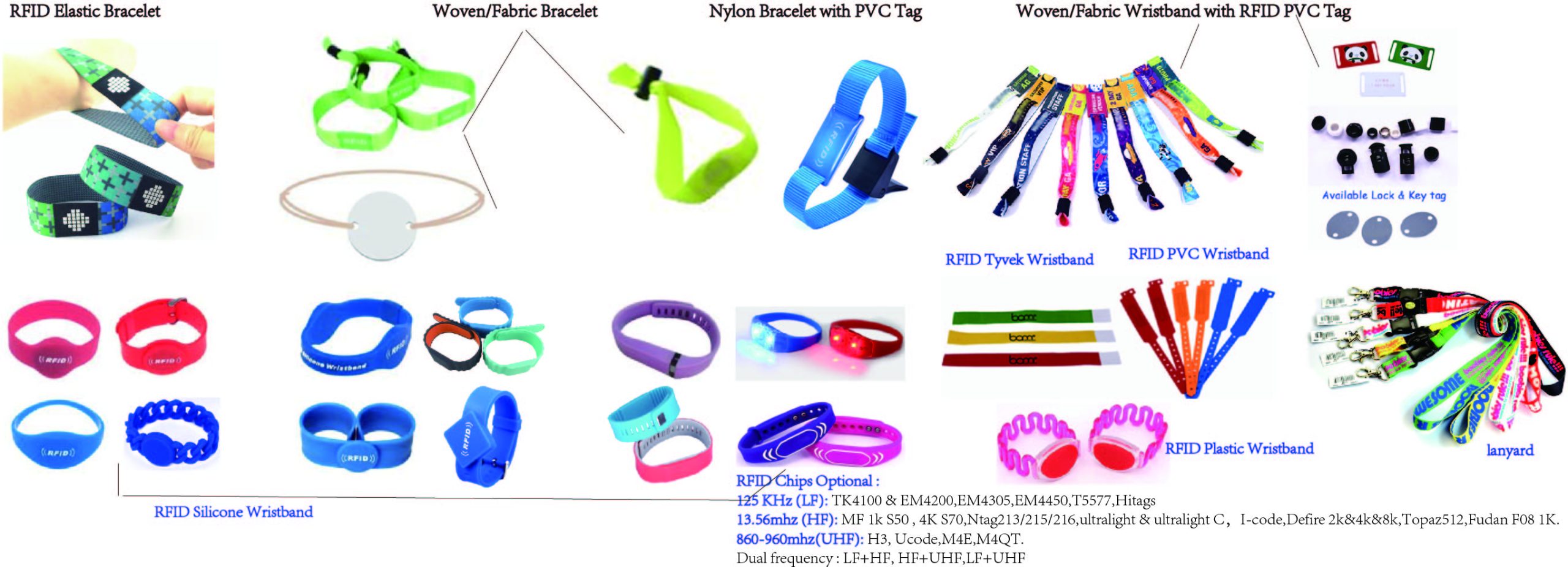Basic RFID News
Application Scheme: Integrating RFID Products with AI Technologies
1. Introduction
Radio-Frequency Identification (RFID) and Artificial Intelligence (AI) are transformative technologies that, when combined, unlock innovative solutions across industries. RFID provides real-time data capture and tracking capabilities, while AI adds predictive analytics, automation, and decision-making intelligence. This scheme outlines key applications, implementation strategies, and benefits of integrating RFID with AI.
2. Key Application Areas
2.1 Smart Supply Chain and Logistics
RFID Role: Track inventory, pallets, and shipments in real time.
AI Integration:
Use machine learning (ML) to predict demand fluctuations and optimize inventory allocation.
Deploy AI-driven route optimization for logistics, reducing fuel consumption and delivery times.
Example: AI algorithms analyze RFID-generated data to identify bottlenecks and recommend corrective actions.
2.2 AI-Driven Manufacturing
RFID Role: Monitor equipment status, raw materials, and work-in-progress items.
AI Integration:
Predictive Maintenance: AI analyzes RFID sensor data to forecast machinery failures.
Quality Control: Computer vision systems paired with RFID-tagged products detect defects and trigger automated adjustments.
2.3 Retail and Customer Experience
RFID Role: Enable smart shelves and contactless checkout.
AI Integration:
Personalized Marketing: AI analyzes RFID-tracked customer behavior (e.g., product interactions) to deliver targeted promotions.
Inventory Replenishment: AI predicts stockouts and automates restocking via RFID data.
2.4 Healthcare and Medical Asset Management
RFID Role: Track medical equipment, pharmaceuticals, and patient wristbands.
AI Integration:
Patient Flow Optimization: AI models use RFID data to reduce wait times and allocate resources efficiently.
Drug Safety: AI verifies RFID-tagged medication against patient records to prevent errors.
3. Case Study: AI-Enhanced RFID in Automotive Manufacturing
Scenario: A car manufacturer integrates RFID tags into components and tools on the assembly line.
Implementation:
RFID tags collect real-time data on part locations and tool usage.
AI algorithms analyze data to predict tool wear and schedule maintenance.
Computer vision systems validate component placements using RFID-guided coordinates.
Outcome:
30% reduction in production downtime.
15% improvement in assembly accuracy.
4. Benefits and Challenges
| Benefits | Challenges |
|---|---|
| Enhanced operational efficiency. | High initial setup costs. |
| Data-driven decision-making. | Privacy concerns with RFID tracking. |
| Scalability across industries. | Integration complexity with legacy systems. |
5. Future Outlook
Miniaturized RFID Tags: Enable embedding in smaller objects (e.g., medical implants).
Edge AI: Process RFID data locally on edge devices for faster insights.
Sustainability: AI-powered RFID systems to optimize energy use in smart cities.
6. Conclusion
The fusion of RFID and AI creates a powerful synergy for automation, efficiency, and innovation. Industries adopting this integration will gain a competitive edge through smarter resource management, predictive capabilities, and enhanced user experiences. To maximize ROI, organizations should prioritize pilot projects, invest in interoperable systems, and address ethical considerations proactively.

Expanded Application Cases for RFID + AI Integration
Case 1: Precision Agriculture
Scenario: Deploy RFID tags on livestock, crops, and farming equipment.
Integration:
Predict disease outbreaks in livestock using behavioral data from RFID collars.
Optimize irrigation schedules by analyzing RFID soil sensor data with weather forecasts.
RFID: Track livestock health metrics (e.g.,体温, movement) and monitor soil moisture via tagged sensors.
AI:
Outcome:
20% reduction in water usage.
15% increase in crop yield through AI-guided fertilization plans.
Technical Highlight:
Edge AI processes RFID data on-farm to reduce latency.
RFID tags with biodegradable materials for eco-friendly deployment.
Case 2: Smart City Traffic Management
Scenario: Embed RFID tags in vehicles, traffic lights, and road infrastructure.
Integration:
Dynamically adjust traffic light cycles using reinforcement learning.
Predict congestion hotspots and reroute emergency vehicles via RFID-enabled priority lanes.
RFID: Capture real-time vehicle locations and traffic flow patterns.
AI:
Outcome:
35% faster emergency response times.
25% reduction in urban traffic congestion.
Technical Highlight:
Ultra-high-frequency (UHF) RFID for long-range vehicle tracking.
Federated learning ensures privacy while aggregating traffic data.
Case 3: AI-Powered Airline Baggage Handling
Scenario: Attach RFID tags to luggage and integrate with airport AI systems.
Integration:
Predict baggage mishandling risks using historical RFID data.
Deploy autonomous robots to reroute delayed bags via optimal paths.
RFID: Monitor baggage location and condition (e.g., temperature for fragile items).
AI:
Outcome:
99% baggage delivery accuracy.
40% faster baggage recovery for delayed flights.
Technical Highlight:
RFID tags with tamper-evident features for security.
AI-driven chatbots notify passengers about baggage status via mobile apps.
Case 4: Energy Grid Maintenance
Scenario: Install RFID sensors on power lines, transformers, and renewable energy equipment.
Integration:
Forecast grid failures using anomaly detection in RFID sensor data.
Optimize maintenance schedules with digital twin simulations.
RFID: Track equipment wear (e.g., vibration, temperature) and component replacements.
AI:
Outcome:
50% fewer unplanned outages.
30% cost savings in preventive maintenance.
Technical Highlight:
Solar-powered RFID sensors for remote energy infrastructure.
Generative AI designs failure-resistant grid layouts.
Case 5: AI-Enhanced Library Systems
Scenario: Tag books, shelves, and user cards with RFID in smart libraries.
Integration:
Recommend books based on user borrowing history and RFID-tracked browsing behavior.
Use NLP to summarize newly tagged books for digital catalogs.
RFID: Automate check-in/check-out and locate misplaced books.
AI:
Outcome:
90% reduction in manual inventory checks.
25% increase in user engagement via personalized recommendations.
Technical Highlight:
RFID readers integrated with AR glasses for staff to visualize shelf layouts.
Format Choice Rationale
Why This Format:
Structured sections with bold headers, bullet points, and technical highlights ensure clarity while showcasing diverse industries (agriculture, aviation, energy, etc.).No Tables Used:
Avoided tables to maintain flow for narrative-driven case studies.
Let me know if you’d like to dive deeper into any case!

RELATED NEWS
CATEGORIES
LATEST NEWS
CONTACT US
Contact: June
Phone: 18018749814
E-mail: info@coretags.com
Whatsapp:+8618018749814
Add: CN,Guangdong,Shenzhen,No. 707, No. 20, Lane 4, Wayao Garden, District 33, Shanghe Community, Xin'an Street
